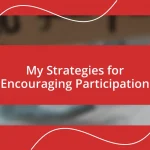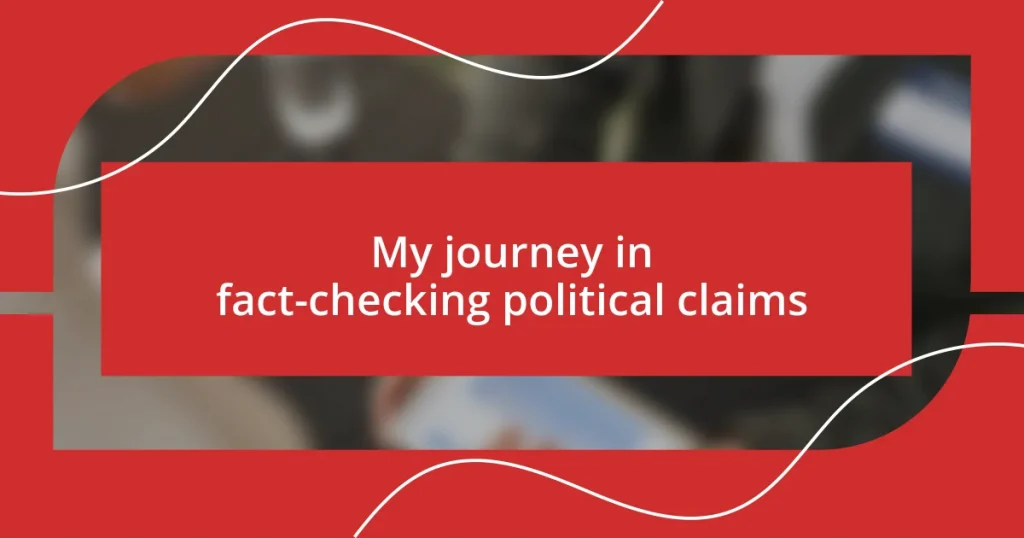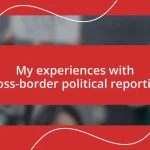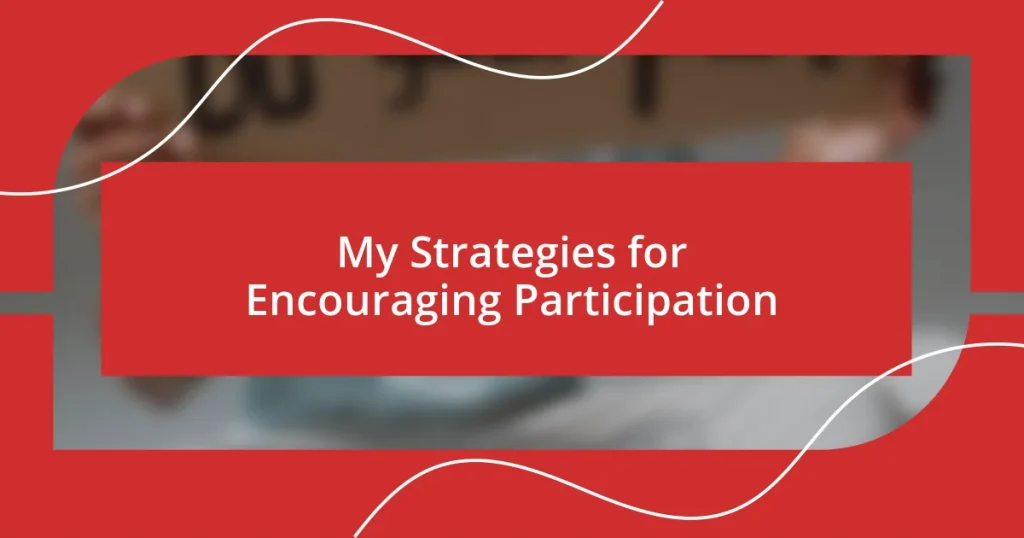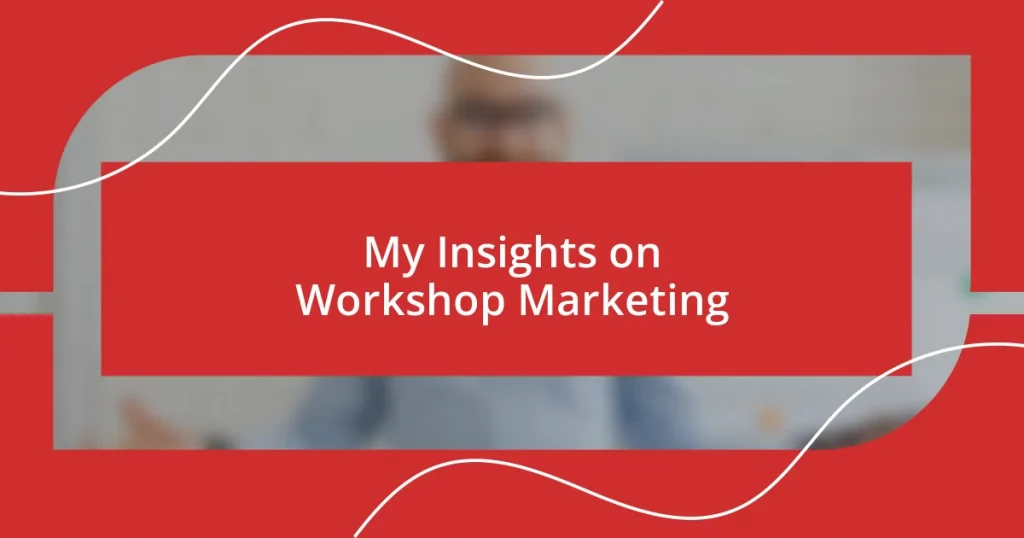Key takeaways:
- Understanding and fact-checking political claims is essential to prevent the spread of misinformation and enhance informed citizenship.
- Utilizing reliable tools like Snopes and PolitiFact can significantly improve the accuracy of shared information and foster meaningful discussions.
- Fact-checking cultivates a more discerning public, enhances trust in media, and promotes a culture of verification that empowers society through accurate information.
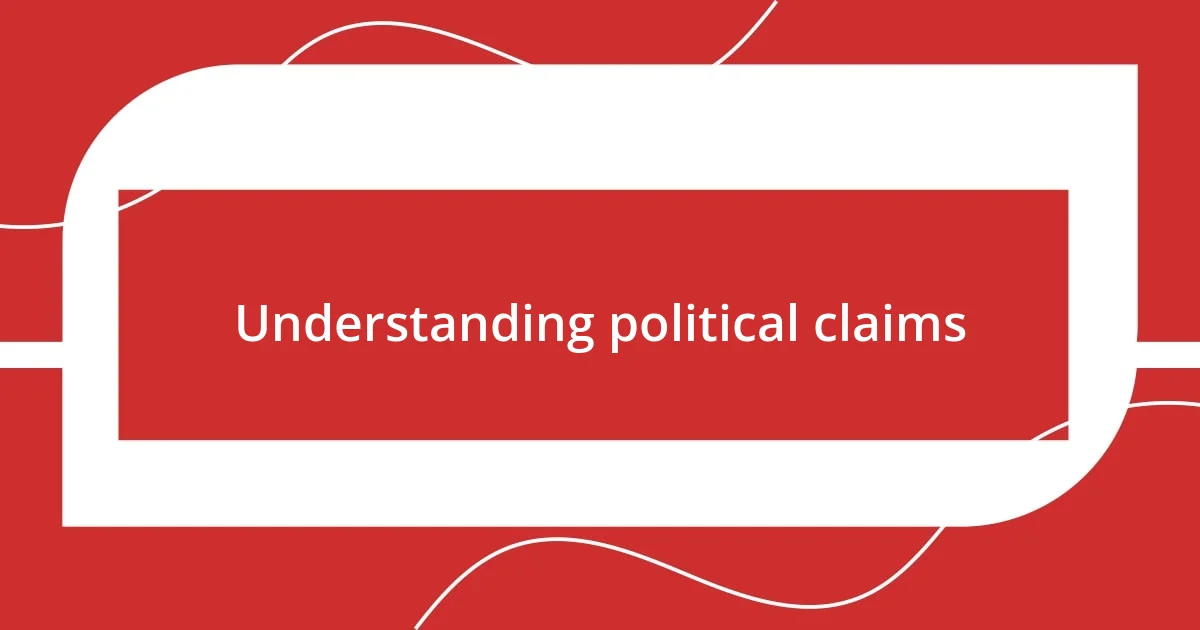
Understanding political claims
Political claims often serve as the foundation of debates and discussions. I remember a moment in a local town hall meeting when a politician made a bold statement about crime rates in our area. Hearing it, I felt a rush of adrenaline; it seemed so definitive, yet I couldn’t shake the nagging question: “Is this true, or just a political talking point?”
Understanding these claims requires more than just accepting them at face value. I’ve seen how easily misinformation can circulate; it’s like a game of telephone where one small misrepresentation morphs into a commonly accepted “fact.” This realization hit me hard when I once shared a seemingly innocuous post online, only to find that the claims were misleading. It reminded me that we must critically analyze the sources behind political statements rather than relying solely on sentiment.
Moreover, what often strikes me is the emotional weight behind political claims. They can evoke fear, hope, or anger. One personal experience that really stood out was when a friend passionately argued that a policy would save lives, a sentiment I initially shared. This made me wonder—how often do we react emotionally to claims without digging deeper into the evidence behind them? It’s this instinct that can cloud our judgment, making it vital to sift through the noise and truly understand what’s being said.
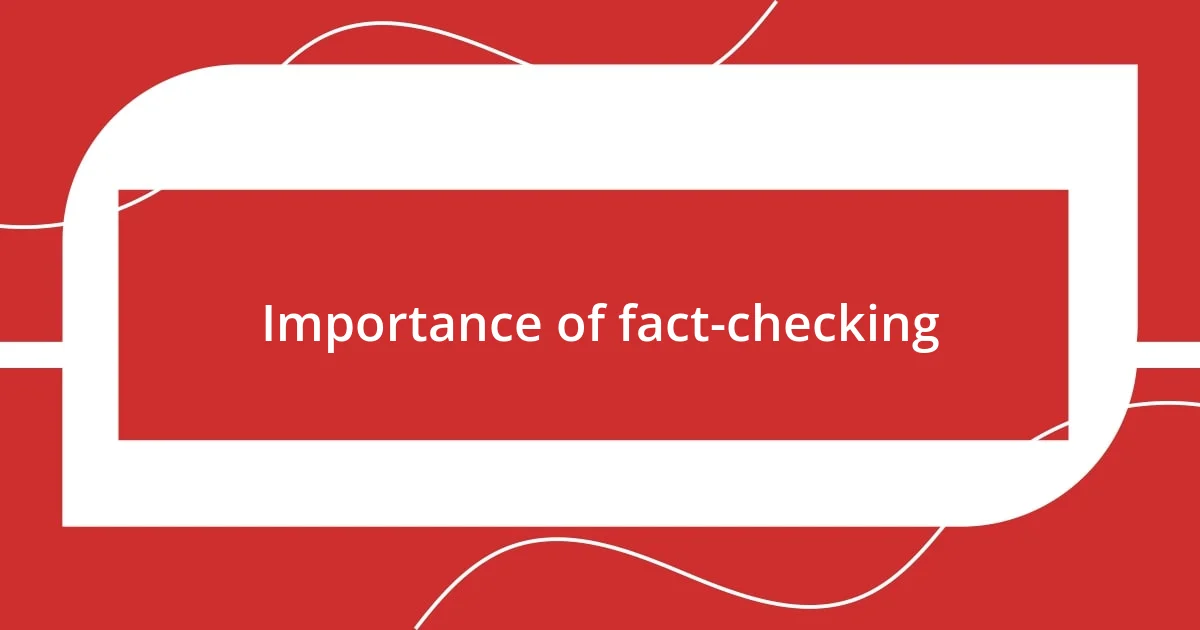
Importance of fact-checking
The role of fact-checking is paramount in today’s media landscape, where information is abundant but can often be misleading. I recall feeling a mix of frustration and disbelief when I discovered that a widely shared article had misrepresented statistics about voter turnout. It turned my world upside down; I realized how easily people could be swayed by persuasive yet incorrect information. This experience reinforced my belief that fact-checking isn’t just a tool—it’s a necessity for informed citizenship.
- It enhances critical thinking by encouraging individuals to verify information before forming opinions.
- It contributes to accountability, holding politicians and public figures responsible for their statements.
- It cultivates trust in media and journalism, providing a foundation for a well-informed public.
Digging deeper into facts can spark a chain reaction of better understanding. One day, while debating a controversial policy with a colleague, I cited a popular source that later proved faulty. The awkward moment made me appreciate that errors can not only harm credibility but can also derail meaningful discussions. Embracing fact-checking builds bridges of understanding, ensuring conversations are rooted in truth rather than conjecture.
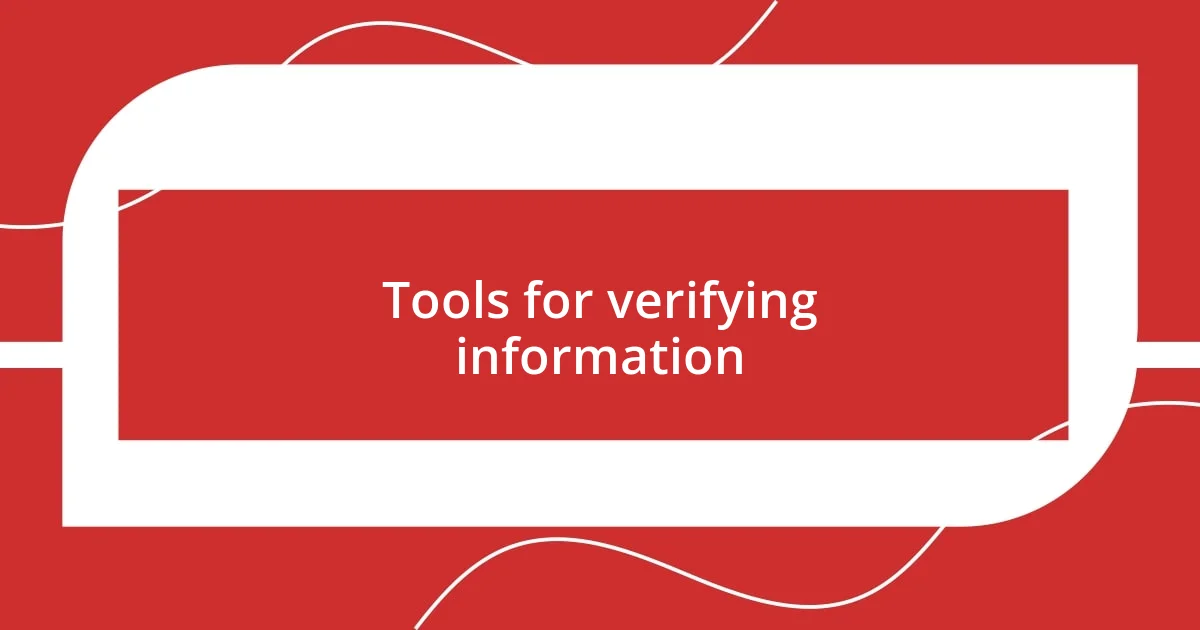
Tools for verifying information
When it comes to verifying information, the right tools can make all the difference. One of my favorite resources is Snopes. Whenever I stumble upon a dubious claim on social media, I head straight to Snopes. Its straightforward explanations and extensive database often clarify murky situations. I can’t tell you how many times it has saved me from sharing misinformation that could have led my friends astray.
Moreover, I often rely on PolitiFact, particularly when political statements are involved. They provide detailed reports and grades on the accuracy of claims made by public figures. The first time I used it was during a heated family dinner about a recent policy change. I felt a mix of excitement and apprehension as I checked a claim on PolitiFact about the policy’s implications; in that moment, I not only gained clarity but also stood firm in a discussion that could easily have spiraled into confusion.
Lastly, Google’s Fact Check Explorer has been a game-changer for me. I remember when a viral video made its rounds addressing a contentious issue, and I felt compelled to understand its authenticity. Using the Fact Check Explorer helped me see various fact-checkers’ takes on the video, allowing me to articulate a more informed viewpoint. I cherish these moments because they empower me to engage with confidence and contribute meaningfully to conversations rather than being a passive participant.
| Tool | Description |
|---|---|
| Snopes | A comprehensive resource for debunking urban legends and verifying claims. |
| PolitiFact | Focuses on checking the accuracy of statements made by politicians with detailed analyses. |
| Google Fact Check Explorer | A tool that aggregates fact checks from various sources, enhancing research on specific claims. |
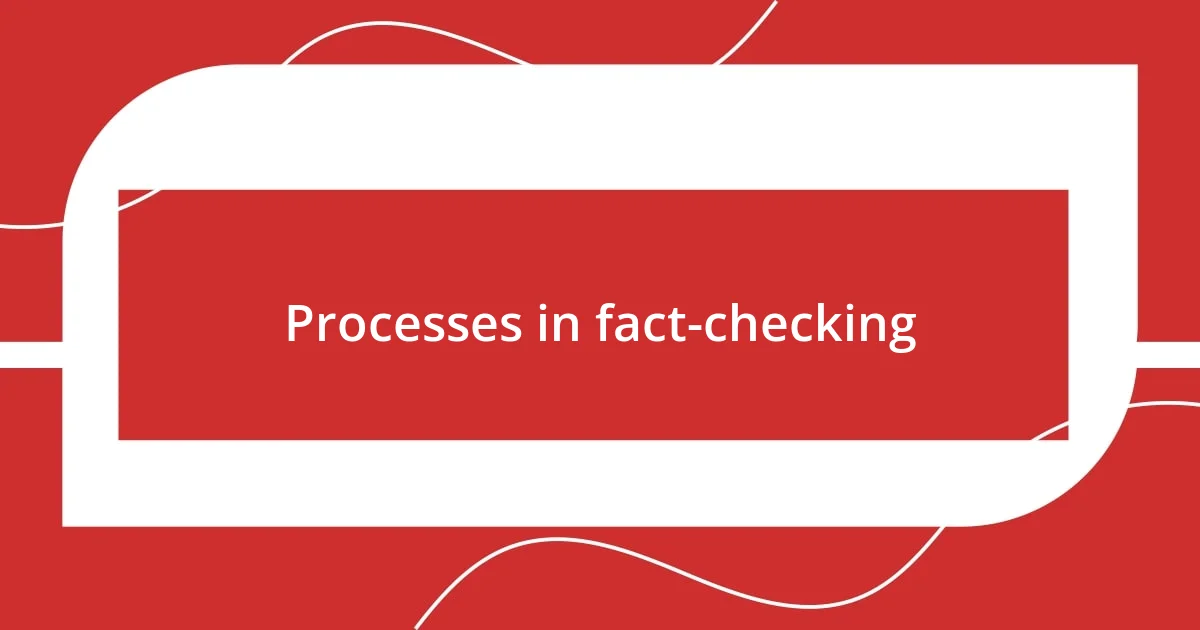
Processes in fact-checking
The process of fact-checking begins with identifying the claim in question. I vividly remember an instance where a friend argued about a particular political policy based on a viral meme. Curiosity piqued, I decided to investigate the underlying assertions. This step not only clarified my own understanding but also allowed me to engage my friend in a more enlightened discussion. Isn’t it fascinating how one claim can spark a journey into the depths of truth?
Once a claim is identified, the next phase is gathering relevant evidence. I often dive into reputable sources, scrutinizing studies, reports, and expert opinions. I recall a time I sifted through numerous articles about healthcare statistics. The myriad of viewpoints and data made me realize how essential it is to consider the context and nuances of the information. After all, the true story often lies hidden beneath layers of numbers and narratives.
Lastly, evaluating the credibility of sources is crucial. I can’t emphasize enough how this part of the process has shaped my perspective. As I learned to discern between credible agencies and dubious outlets, I felt empowered to share information responsibly. The moment I was able to challenge misinformation circulating within my social circle was particularly gratifying. Can you relate to that rush of clarity when you finally grasp the truth? It’s a powerful motivator to keep digging deeper in the pursuit of factual accuracy.
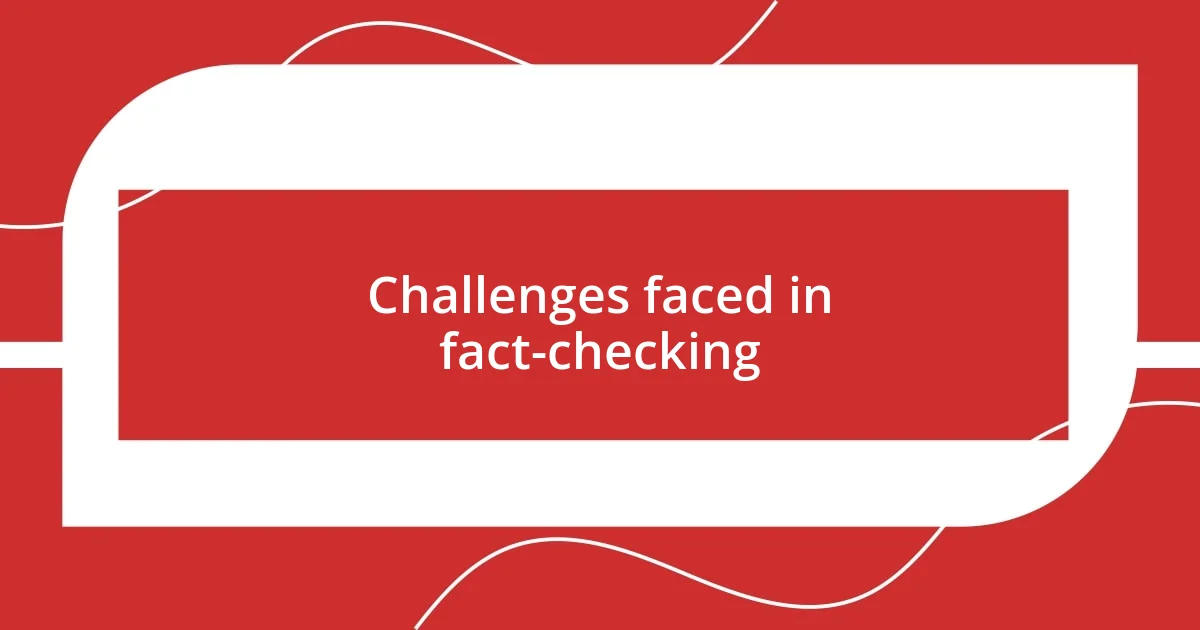
Challenges faced in fact-checking
One of the primary challenges I’ve faced in fact-checking is the overwhelming volume of information available online. There are days when I feel buried under a mountain of articles, studies, and tweets, especially during heated political debates. Have you ever tried to untangle a web of conflicting reports? It can be incredibly frustrating, leaving me wondering which sources are trustworthy and which are not.
Another hurdle is the rapid spread of misinformation, often outpacing the fact-checking efforts. I vividly recall an incident when a false claim regarding a public figure went viral overnight. By the time I managed to sift through the noise and verify the facts, countless people had already shared the misinformation. It struck me how easily a single inaccurate statement could morph into a widely accepted belief in just a few hours.
Finally, even when I find credible information, the challenge of presenting it in an engaging way persists. There was a time I shared a well-researched fact check on social media, only to be met with indifference from my peers. It made me realize that facts alone aren’t always persuasive; they need to be wrapped in a narrative that resonates emotionally. Isn’t it ironic how conveying truth can sometimes feel more difficult than uncovering it?
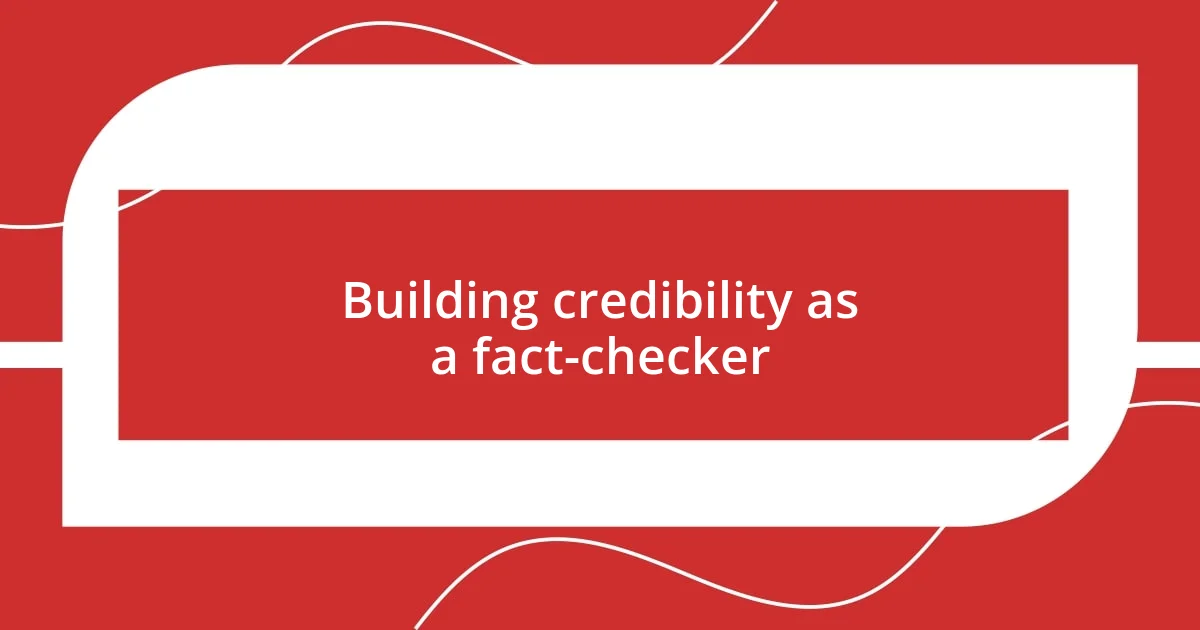
Building credibility as a fact-checker
Establishing credibility as a fact-checker is something I’ve learned to approach with intention. In my early days, I often felt the need to prove my knowledge through exhaustive citations. Yet, I soon realized that sharing my journey, including the lessons learned from mistakes, resonated just as much with my audience. Have you ever shared a misstep only to find it opened a more meaningful dialogue? That vulnerability can foster trust, making the facts I’m presenting feel more relatable.
Consistency is another pillar of building credibility. I remember a time when I pledged to fact-check a particular claim repeatedly—over days, in various social media threads—until the truth became clear. This diligence not only reinforced my own understanding but also illustrated to my peers that I was committed to accuracy over convenience. It’s remarkable how, with each small victory in truth-telling, my confidence grew. Don’t you think that immersing oneself in fact-checking can deepen our understanding of the topic at hand?
Moreover, engaging with my audience has proven vital in cementing my credibility. Initially, I would post findings without much context, but it was the feedback that shaped my approach. When a reader reached out, sharing their skepticism, I used that as a chance to explain my methodology in greater detail. This interactive process not only enriched my work but also nurtured a community that valued open discourse. Isn’t it extraordinary how conversation can bridge the gap between mere information and genuine understanding?
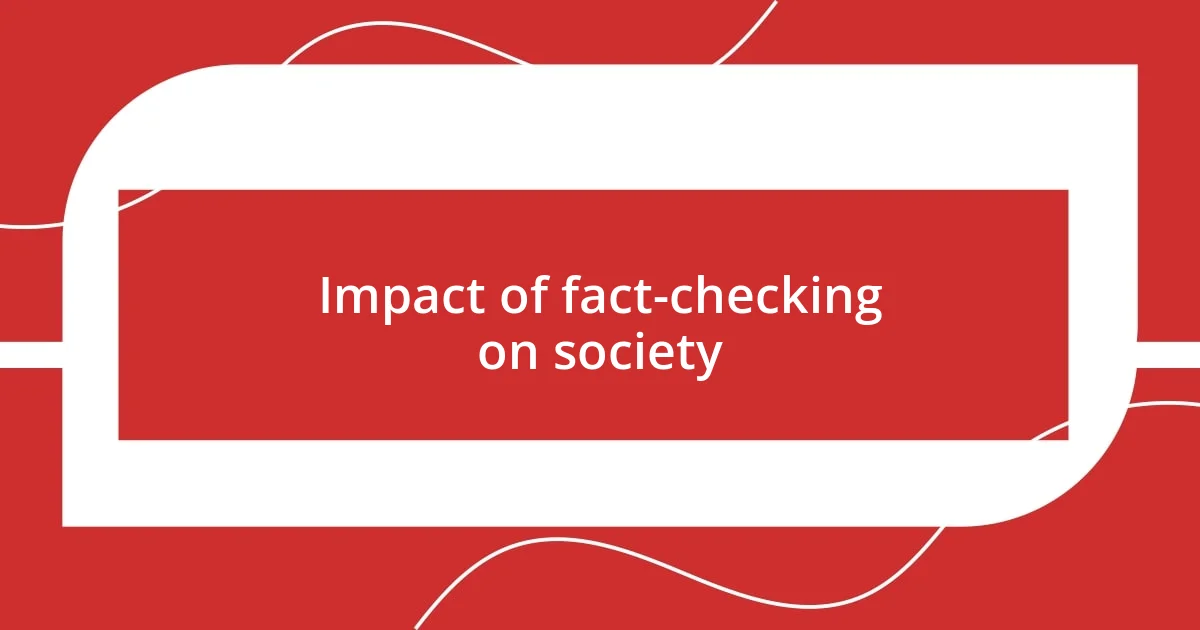
Impact of fact-checking on society
The impact of fact-checking on society is profound and multifaceted. I’ve noticed, particularly in recent years, that fact-checking has cultivated a more discerning public. For instance, during a heated election cycle, I observed friends becoming more skeptical of sensational claims. It was heartening to see them double-check information before sharing it. Have you felt that shift in people’s attitudes around you too?
Furthermore, fact-checking has a ripple effect on trust in media and institutions. I recall engaging in discussions where people openly questioned news sources due to their commitment—or lack thereof—to accuracy. This scrutiny can pressure organizations to prioritize factual reporting, making the media landscape healthier. It’s fascinating how a culture of verification can change the dynamic between journalists and the public, wouldn’t you agree?
Lastly, the emotional resonance of fact-checking shouldn’t be overlooked. The relief I’ve felt when debunking a harmful myth is palpable. It’s almost like lifting a weight off the shoulders of those misled by falsehoods. I remember the feeling of sharing a successful fact-check and witnessing a community rally around accurate information. That moment reminded me that our collective action in championing truth can empower society as a whole, don’t you think?
